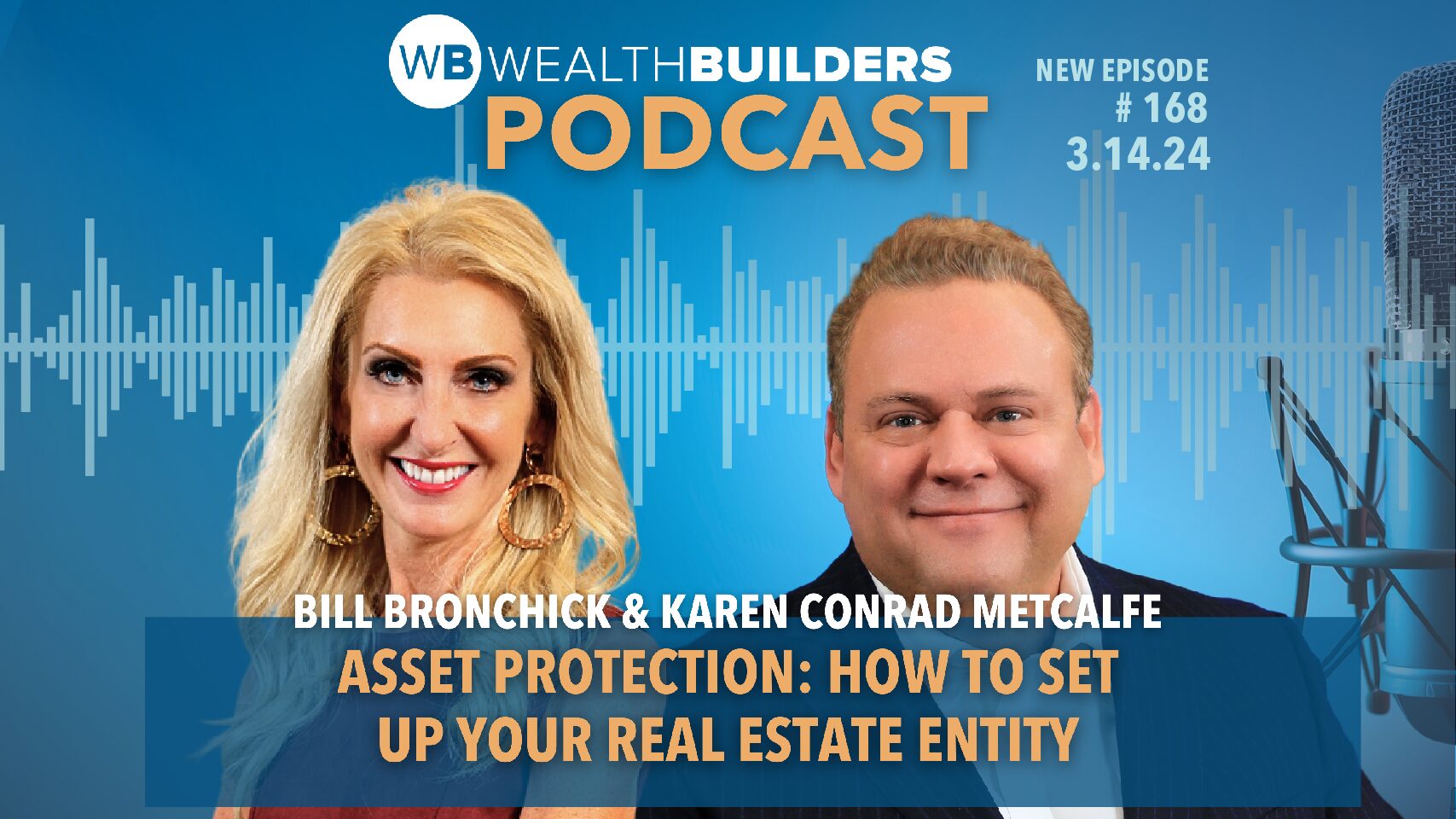Success as a real estate investor doesn’t depend on how much money you make–it depends on how much you get to keep. Knowing how to guard your assets with the right legal entity and tax protections is vital. So, in this episode of The WealthBuilders Podcast, we teach you how to do just that. Karen Conrad Metcalfe sits down to talk with expert real estate attorney and investor, Bill Bronchick, about all things asset protection.
Listen to the episode on your preferred podcast platform, or watch the video podcast on Youtube below!
Shownotes // Asset Protection: How to Set Up Your Real Estate Entity
- When it comes to rules and regulations, there’s what you know, there’s what you don’t know, and then the scary part — what you don’t know you don’t know.
- Real estate and business owners are easy targets for lawsuits. So, it’s important to know how to protect your assets.
Considerations for Choice of Entity
- Risk of exposure to lawsuits and/or liability
- Cost of forming and maintaining entities
- For example, states like New York, Illinois, and California have fairly high filing fees. California has this monster franchise tax they charge every year on entities. On the other hand, in states like Colorado it is only $50 to file.
- Tax implications and tax reporting
- Transition of ownership to heirs
Different Types of Entities
- “C” Corporation
- “S” Corporation
- Limited Liability Company
- ‘Family’ Limited Partnership
Determine the nature of your real estate income
- Is it passive: income that you don’t actively work for, like rental income or interest earned on a property?
- Is it earned: income that you work for, like flipping or wholesaling homes.
- Passive income goes in an LLC or Limited Partnership. Earned income goes in a C or S Corporation.
- Don’t hold rental properties in your personal name. Instead, hold up to three properties in an LLC. That way, if your tenant sues you, you are protected and the majority of your properties are protected. Then, you can hold all of your LLCs in a parent company.
Do you want to dive into the details about how to protect your properties and maximize tax benefits? Then join us for The 2024 WealthBuilders Real Estate Workshop! A speaker panel of expert investors like Bill Bronchick are ready to coach you on how to start and scale your real estate portfolio. Click here to register for this event in Denver or online, April 5-7.




Your article helped me a lot, is there any more related content? Thanks!